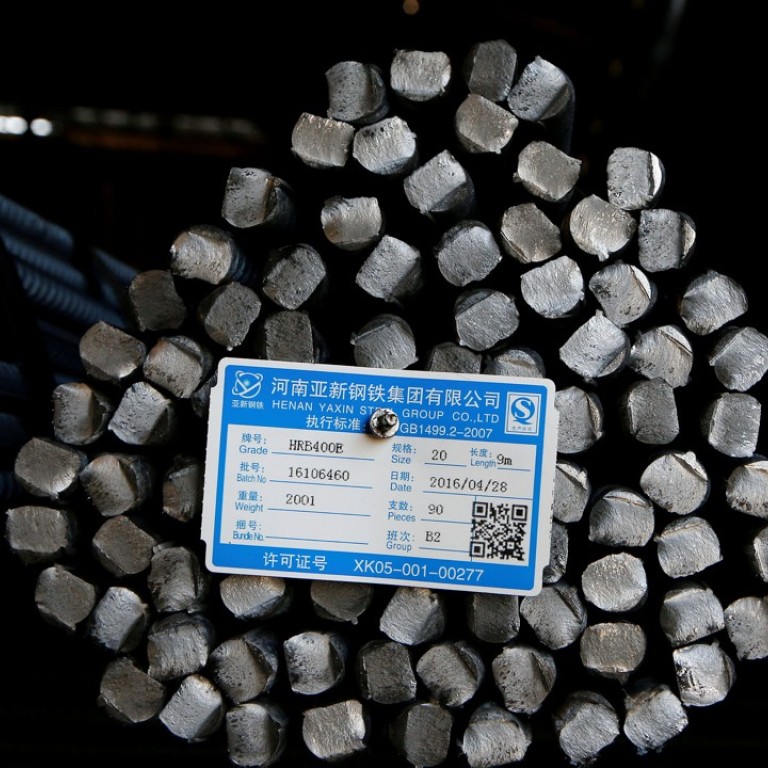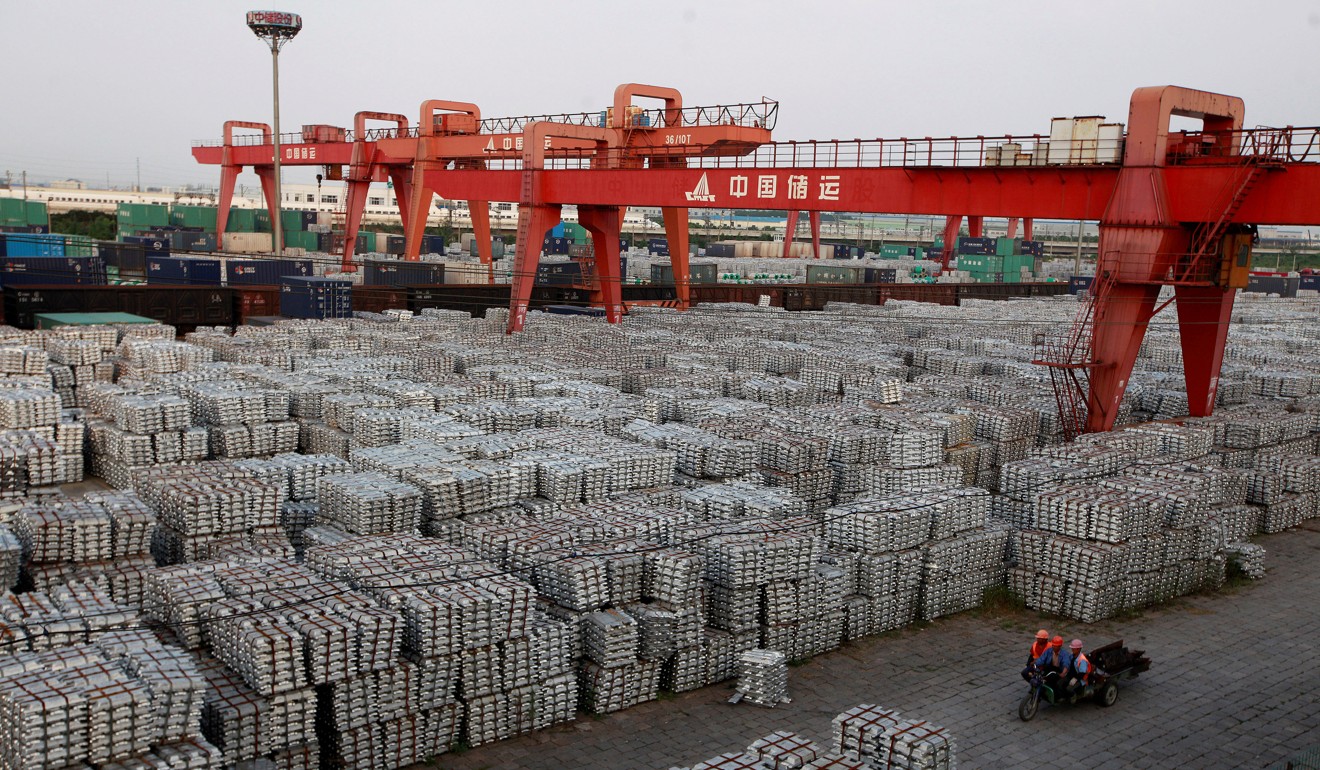
Sudden slump in Chinese stocks leaves experts at odds over immediate direction of equities
The trigger for Friday’s share selling (SCI down 1.6pc) came from a statement by the China Iron and Steel Association that questioned the recent quick rise in steel prices
A sudden slump in Chinese stocks has left the nation’s most accurate strategist at odds over how equities will fare going forward, with a top-performing fund manager.
A sell-off in commodity producers, the best-performing sector in the second half, sent the Shanghai Composite Index sliding 1.6 per cent, the year’s steepest decline, on Friday.
While Bocom International Holdings, the securities arm Bank of Communications, argued the benchmark’s 7.9 per cent rally from this year’s low in May is likely to falter as the government may step in to rein in surging raw-material prices, HFT Investment Management insisted the unexpected slide provides a buying opportunity for stocks.
The trigger for Friday’s selling came from a statement by the China Iron and Steel Association that questioned the recent quick rise in steel prices.
The association said some other institutions over-interpreted or even misinterpreted the government’s cutback in excessive capacity, and jumped to the rash conclusion that steel products will continue rising.
That was enough to sound an alarm bell for Hong Hao, the head of research with Bocom International, who accurately predicted China’s stock market crash in 2015.
Further gains in commodity prices will probably invite intervention from policy makers, hurting sentiment in underlying stocks, he said.

“Cyclicals should take a pause,” Hong said. “The risk-off sentiment is a trigger.”
Risk-off is an investment setting in which price behaviour responds to, and is driven, by changes in investor risk tolerance.
He recommended investors rotate to consumer and technology stocks, without naming any specifics, and he is proving to be right, at least for now.
Straight after Friday’s market closure, the Shanghai Futures Exchange said it will increase the cost of trading in steel rebar contracts fivefold, and impose a limit on the daily number of new contracts that can be bought and sold, starting this week. The future contracts have surged 42 per cent this year.
Rebars are not the only commodities to have seen soaring prices this year. President Xi Jinping’s so-called supply-side reform of curtailing unneeded output of traditional manufacturing industries has pushed up prices in a wide-range of other raw material too, amid supply concerns.
Aluminium prices rose to a five-year high in Shanghai, and coking coal – the fuel used to make steel – are now trading near their highest level this year on the Dalian commodity exchange.
And that frenzy quickly spilled over to the equity market.
Commodity prices will continue to rise and the mega-trend won’t be altered. Relatively tight supply will become a persisting situation, as lots of companies are forced to cut output because of pressure to meet environmental protection requirements
A gauge of mainland-listed commodity stocks had climbed as much as 31 per cent over the past two months through last week, with China Northern Rare Earth Group High-Tech and Aluminum Corp of China leading the advance with gains of more than 70 per cent. But the measure did lose 5 per cent on Friday.
Fundamentals still support further gains in commodity stocks as supply remains strained with continuing capacity cuts and demand improving on better-than-expected economic growth, according to Gu Xiaofei, a Shanghai-based fund manager at HFT Investment.
His HFT Tongfeng Advantage Equity Fund has beaten 75 per cent of its rivals over the past month, according to data compiled by Bloomberg.
“We are relatively upbeat about the market in the third quarter and it is still likely to go up,” said Gu.
“Cyclicals may deliver good returns after falling to reasonable levels amid the correction.”
The turmoil has already sent commodity stock valuations to an historical average level. The sub-index of raw-material stocks is valued at 20.3 times projected earnings for the next 12 months, matching its seven-year average, Bloomberg data showed.
Gu is not alone in predicting the magnitude of the decline will be limited.
Wang Zheng, chief investment officer at Jingxi Investment Management in Shanghai, says cyclical companies remain his favourites, though the stocks are may rise mildly in future.
“Commodity prices will continue to rise and the mega-trend won’t be altered,” he said.
“Relatively tight supply will become a persisting situation, as lots of companies are forced to cut output because of pressure to meet environmental protection requirements.”
The Shanghai Composite rebounded 0.9 per cent to 3,237.36 on Monday and the sub-index of raw-material stocks added 2.3 per cent.
Brokerages including Shenwan Hongyuan Group and Sinolink Securities sided with Bocom International, in saying cyclical stocks are a sure bet to decline.
Any overly rapid gain in commodity prices does not serve policy makers’ purpose of cutting capacity as rising costs eat into manufacturers’ profits and undermines the government’s goal of developing high-end manufacturing, said Wang Sheng and Fu Jingtao, analysts at Shenwan Hongyuan.
Sinolink’s strategist Li Lifeng is generally cautious about the outlook of the stock market, insisting that the risk appetite for equities is falling, and a contraction in supply is unlikely to keep commodity prices strong for long.
He recommends low-valuation banking stocks as hedges against potential declines.
For Bocom International’s Hong, Friday’s tumble probably meant the market is reverting back to fluctuation mode, with the Shanghai Composite failing to breach a major technical resistance, at around 3,300.
“It’s range-bound trade, instead of one way,” he said.

